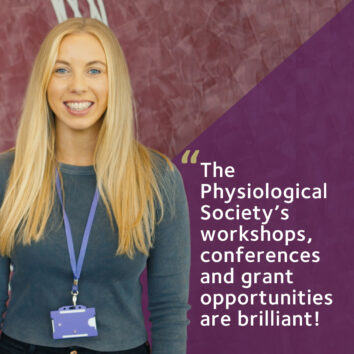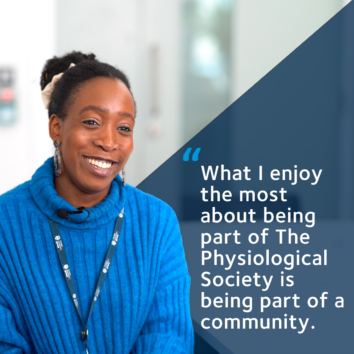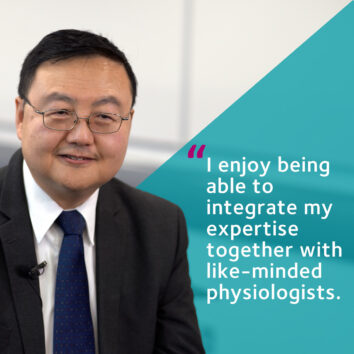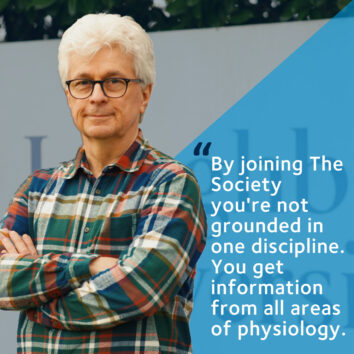

Dr Ruth Norman
The thing I enjoy most about being part of The Physiological Society is the sense of belonging and the sense of community that it helps provides.
Career journey

Hear from Dr Ruth Norman
Questions and Answers
What inspired you to work in cardiac physiology?
I think it partly comes from my undergraduate degree which was in anatomy, and then I did a PhD in cardiac physiology. Being able to see how the structure of the anatomy links with the function in cardiac physiology really gave me a real excitement.
What inspired you to join The Physiological Society?
When I first came to Leeds University for my PhD, there were several post-docs and PhD students around the summertime who were going to go to a conference down in Birmingham – the International Physiological Society Conference (IUPS). They were saying, I should really come along and it was going to be really exciting.
What do you enjoy the most about working in physiology?
I really enjoy the broad range of what physiology covers and I really enjoy how you can really understand a lot of the body systems and how we work.
What’s been the most exciting part of your career?
Some of the most exciting times are attending scientific conferences.
What’s been the biggest challenge in your career?
You could say it’s the challenge of working in science in general, finding enough time to do everything you’re interested in.
How has being a member of The Society benefited your career?
It has really benefited my career from just creating a sense of community. So both the membership forum online is a great place where people can connect. But I enjoy attending both the online one-day meetings that The Physiological Society runs as well as its conferences.
Why do you think physiology is important as a career and in the future? How do you feel physiology or your area of research has an impact on the world?
Physiology is important in understanding how our own physiology is going to change and in particular in terms of thinking about the future.
What do you enjoy the most about being a part of The Society?
The thing I enjoy most is the sense of belonging and the sense of community that it helps provide.
What would you say to others looking to join The Society?
I would say just join. The Society has been a huge help for each step that I’ve gone along to, but also for helping me meet lots of others and to be able to communicate and try and help me to that next step in my career.
Timeline
2013 – 2017
Conferences Committee Member
2013 – 2022
Education 7 Teaching Early Career Theme Lead
2021 – 2022
The Physiological Society Steering Group for the Economic contribution of physiology project
November 2022
The Physiological Society Education and Teaching Task and Finish group
Dr Ruth Norman
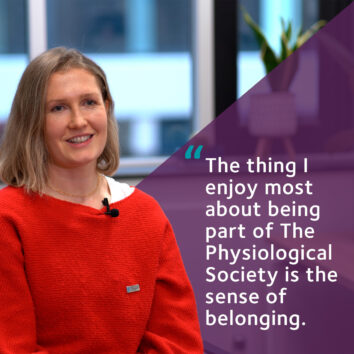
Timeline
2013 – 2017
Conferences Committee Member
2013 – 2022
Education 7 Teaching Early Career Theme Lead
2021 – 2022
The Physiological Society Steering Group for the Economic contribution of physiology project
November 2022
The Physiological Society Education and Teaching Task and Finish group
